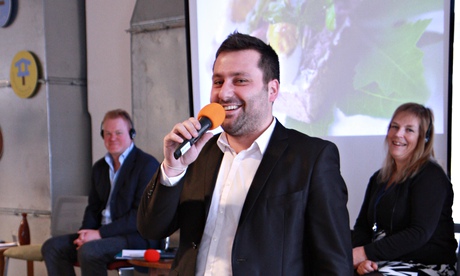Government Grants
Business Grants
Home Owner Programs
Federal Programs
About Us
Grassroots Civil Society Building Program
A principal goal of U. S. assistance in Cuba is to empower Cuban civil society to demand effective democracy and respect for human dignity.
To promote a peaceful transition to self-determined democracy on the island, U. S. assistance programs focus on providing humanitarian assistance to victims
of repression, strengthening civil society, weakening the information blockade, and helping Cubans to create space for dialogue about democratic change and reconciliation.
To encourage civic participation in Cuba, the U. S. program focuses on strengthening independent Cuban civil society groups, including professional associations and labor groups.
Efforts are aimed at increasing the capacity for community involvement in, and networks among, civil society groups.
The United States supports information sharing to, from, and within Cuba, including among civil society groups on the island.In an effort to advocate for human rights, enable expression of political and religious beliefs, and address community needs, civil society leaders create and maintain organized groups that will support a range of their concerns and interests.
These associations contribute to an expanding public sphere and discourse in Cuba that includes political and non-political advocacy, youth empowerment, human rights, free press, art, religion, gender and sexuality, among other local issues.
However, the Cuban government’s repression against civil society leaders and their organizations continues to intensify.
It is estimated that the Cuban Government currently is detaining dozens of political prisoners for peacefully exercising their right to freedom of expression and voicing their political beliefs.
Imprisonment is only one of the many tactics the Cuban Government uses to restrict fundamental freedoms, such as those of expression, association, peaceful assembly, and movement.
Former political prisoners who remain in Cuba are heavily scrutinized and intimidated by the Cuban Government for their political activism.
These repression tactics are applied to family members (including children) of human rights actors as well.
They are denied the right to earn a livelihood, access to basic social services, entry into universities, and experience emotional hardship and alienation, as well as other forms of discrimination and abuse due to family members’ association with political and religious dissenters.
To promote a peaceful transition to self-determined democracy on the island, U. S. assistance programs focus on providing humanitarian assistance to victims
of repression, strengthening civil society, weakening the information blockade, and helping Cubans to create space for dialogue about democratic change and reconciliation.
To encourage civic participation in Cuba, the U. S. program focuses on strengthening independent Cuban civil society groups, including professional associations and labor groups.
Efforts are aimed at increasing the capacity for community involvement in, and networks among, civil society groups.
The United States supports information sharing to, from, and within Cuba, including among civil society groups on the island.In an effort to advocate for human rights, enable expression of political and religious beliefs, and address community needs, civil society leaders create and maintain organized groups that will support a range of their concerns and interests.
These associations contribute to an expanding public sphere and discourse in Cuba that includes political and non-political advocacy, youth empowerment, human rights, free press, art, religion, gender and sexuality, among other local issues.
However, the Cuban government’s repression against civil society leaders and their organizations continues to intensify.
It is estimated that the Cuban Government currently is detaining dozens of political prisoners for peacefully exercising their right to freedom of expression and voicing their political beliefs.
Imprisonment is only one of the many tactics the Cuban Government uses to restrict fundamental freedoms, such as those of expression, association, peaceful assembly, and movement.
Former political prisoners who remain in Cuba are heavily scrutinized and intimidated by the Cuban Government for their political activism.
These repression tactics are applied to family members (including children) of human rights actors as well.
They are denied the right to earn a livelihood, access to basic social services, entry into universities, and experience emotional hardship and alienation, as well as other forms of discrimination and abuse due to family members’ association with political and religious dissenters.
Who's Eligible
Relevant Nonprofit Program Categories
Obtain Full Opportunity Text:
http://www.grants.gov
Additional Information of Eligibility:
The United States Agency for International Development (USAID) is seeking applications for a cooperative agreement from qualified U. S. and Non-U. S. organizations.
Full Opportunity Web Address:
Contact:
Agency Email Description:
Agency Email:
rperera@usaid.gov
Date Posted:
2017-07-31
Application Due Date:
2017-08-21
Archive Date:
2017-09-20
Social Entrepreneurship
Spotlight
This Social Innovation Helps Prevent Bed Sores in Wheelchair Users

Co-founders William Mann and David Mravyan devised the Sensimat during a mandatory project for their MBA at the Richard Ivey School of Business in Canada. Sensimat is a device that helps manage and assess pressure among wheelchair users.

